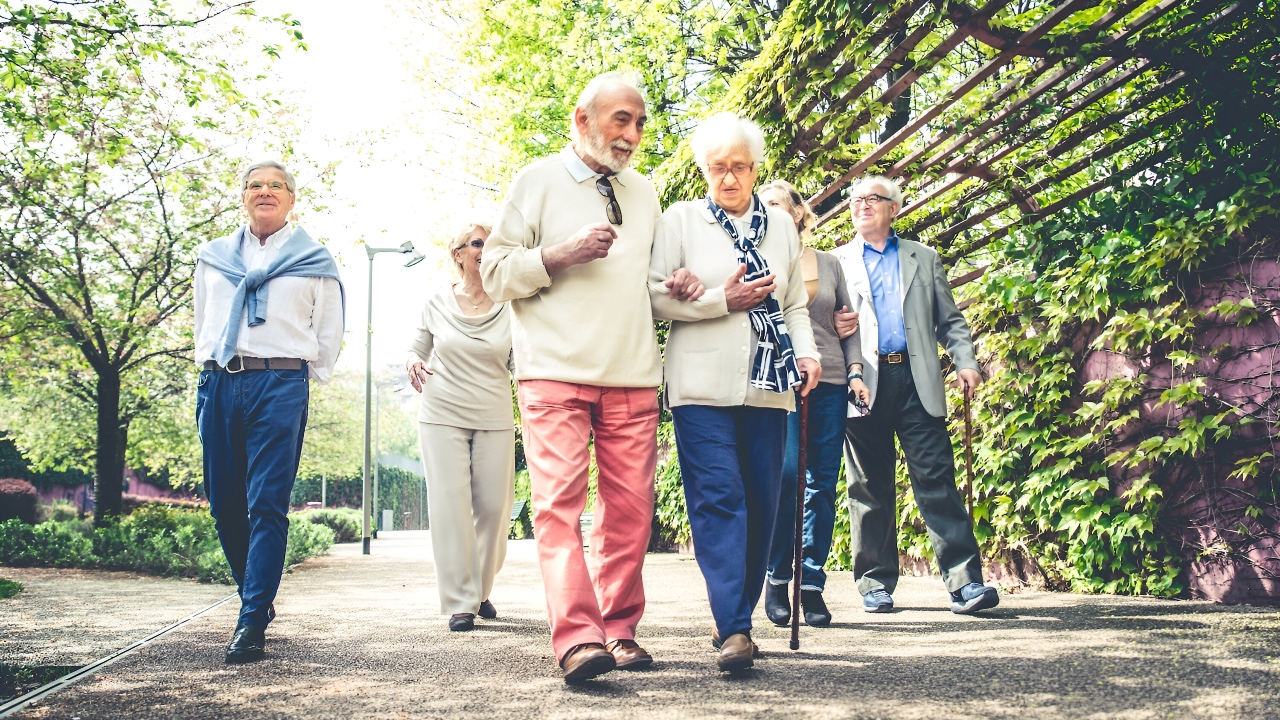
Before your feet touch the floor, your body is already in motion—hormones shifting, blood pressure rising, mental circuits waking like lights flickering on in a quiet town. Most people never pause to notice this moment, yet it’s the exact hinge on which your entire day swings.
Ignore it, and the day feels scattered. Honor it, and you move with surprising clarity, steadiness, and a sense that life is gently unfolding in your favor.
Where the First Sparks of Your Future Hide

Your morning isn’t just a beginning; it’s a calibration. Those early minutes send signals that determine how you think, how you move, and even how deeply you can focus. Before breakfast, your system is scanning for stability—light, fuel, movement, and intention.
When those inputs are missing, the rest of the day runs slightly off-beat. When they’re present, something rare happens: your body and mind align, making the ordinary feel unusually manageable.
The Strange Magic of 6 to 9 A.M.

There’s a subtle electricity in these hours—an opening where biology is unusually moldable. Hormones respond faster. Muscles soften their stiffness. Memory circuits switch on with almost suspicious eagerness. These hours behave like freshly poured concrete, ready to take the shape of whatever impressions you press into them.
Take them lightly, and nothing shifts. Approach them intentionally, and they quietly reorganize how the entire day behaves around you.
The Blueprint Hiding in Plain Sight

Longer life doesn’t begin with dramatic reinventions. It starts with ten simple, almost unremarkable decisions you make before noon. They influence inflammation, balance, metabolic precision, cognitive endurance, and emotional steadiness.
Each one is small, but together they create a kind of inner scaffolding. Seniors who age well aren’t doing the impossible—they’re doing the consistent. And the consistency begins here, in moments so ordinary you might overlook their power.
Moves That Tilt Your Life Forward

These ten moves aren’t trends—they’re deliberate morning actions that quietly shape how you age. Each move matters: a sip of water, a few steps, a stretch, a deep breath, a moment of planning. Small on their own, their impact compounds when done consistently, strengthening your body, mind, and mood.
They’re subtle when you do them, noticeable when you don’t. This is the true power hidden in your morning moves.
1. Drink the Water That Wakes Your Whole System

That first glass acts like internal kindling after a long night without hydration. It restores blood volume, sharpens alertness, and clears the mental haze that builds during sleep. Older adults often underestimate dehydration because the signals of thirst weaken with age, making this morning ritual especially important.
Within minutes, digestion wakes, circulation steadies, and your brain finally receives the fluid balance it needs to function. It’s a deceptively simple way to feel profoundly more capable.
2. Eat Early Enough to Calm Your Hormones

Breakfast timing isn’t a preference; it’s a biological cue. Eating within two hours tames cortisol spikes, steadies your metabolism, and prevents the hormonal drift that leads to irritability and low energy. When breakfast is delayed, the body interprets this as a form of stress.
When it arrives on time, the system settles, creating smoother energy for hours. This early anchoring of metabolism is one of the most consistently protective habits for long-term stability and healthy aging.
3. Stretch the Stiffness Out of Your Future
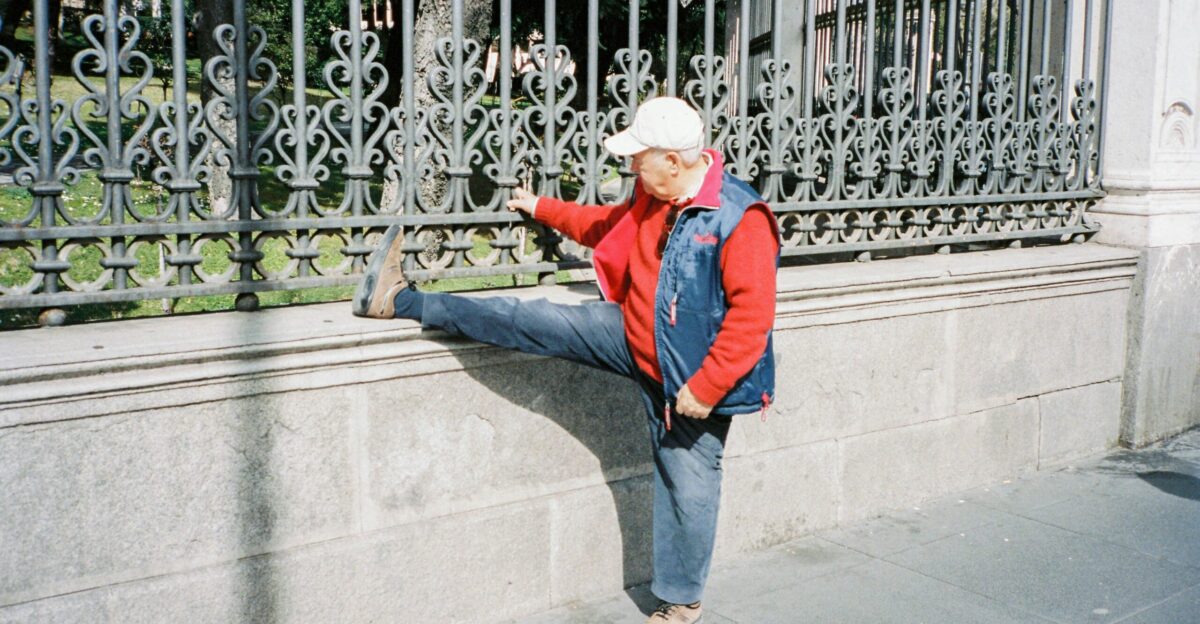
Morning stretching gently reorganizes your joints after hours of immobility. Muscles lengthen, circulation improves, and mechanoreceptors send messages of safety to your nervous system. The effect is immediate: better balance, smoother steps, and fewer painful twinges as the day unfolds.
It’s not about athletic flexibility—it’s about reclaiming the mobility time tries to take. A few intentional minutes prevent the slow, creeping stiffness that often becomes the earliest warning sign of functional decline.
4. Let the Light Switch On Your Brain
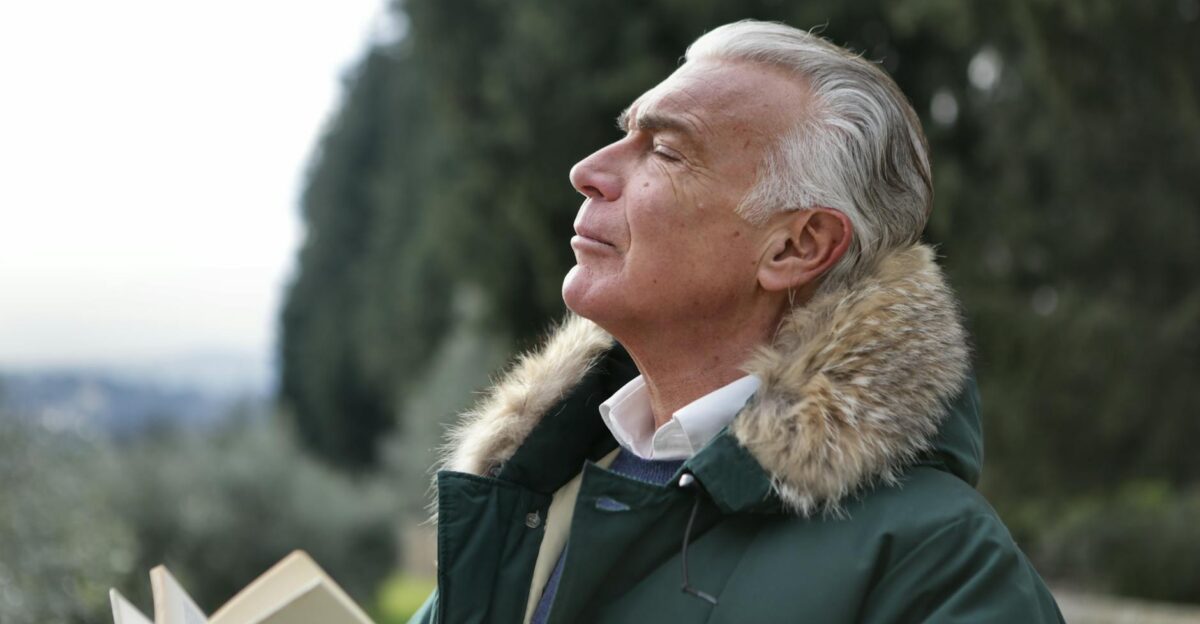
Light doesn’t just brighten a room—it resets your internal clock. Early exposure turns off melatonin, calibrates cortisol, sharpens focus, and primes your mood for the day ahead. This single signal helps regulate digestion, appetite, sleep quality, and emotional steadiness. Even a few minutes outdoors creates measurable shifts.
It’s one of the rare habits where the return on investment is nearly instantaneous, offering clarity and energy long before your coffee finishes brewing.
5. Breathe in a Way That Lowers Your Stress Before It Starts
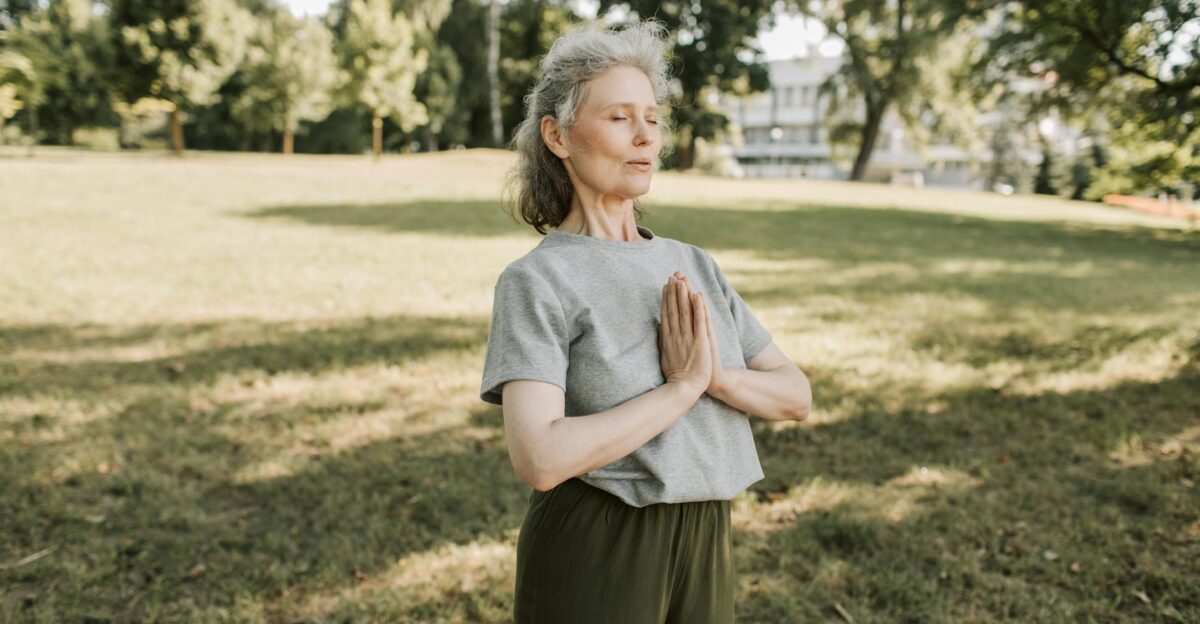
Slow diaphragmatic breathing acts as a quiet override for your stress response. It lowers blood pressure, relaxes muscular tension, and instructs your nervous system to shift into a state of restoration rather than vigilance.
The longer exhale is the secret—it whispers safety to your biology. In a few minutes, anxiety subsides, and thinking becomes clearer. It’s one of the simplest ways to start the day grounded, rather than bracing yourself for impact.
6. Give Your Brain a Challenge Before the World Distracts You

A quick mental puzzle, reading passage, or pattern-recognition task activates memory centers and strengthens cognitive pathways that protect the aging brain. These brief challenges sharpen attention and enhance executive function. They’re the neurological equivalent of stretching—warming up the circuitry you’ll rely on all day.
Seniors who consistently maintain morning cognitive rituals outperform their peers in memory, focus, and problem-solving, making this practice disproportionately powerful for long-term independence.
7. Rise and Sit Again: The Move That Predicts Longevity

Sit-to-stand repetitions strengthen the muscles that govern independence, including the legs, core, and stabilizers that keep you upright and steady. This motion reveals far more than strength—it shows balance, mobility, and coordination. A handful of repetitions each morning reinforces the systems that prevent falls and maintain confidence in daily movement.
It’s a practical, functional assessment disguised as exercise, offering insight into how gracefully you’ll navigate the physical demands of aging.
8. Build a Breakfast That Stabilizes Your Entire Day

A balanced breakfast—featuring protein, fiber, whole grains, and healthy fats—creates lasting stability in blood sugar and energy levels. It reduces inflammation, lowers cardiovascular risk markers, and supports cognitive clarity. Think of it as internal architecture: the sturdier the structure, the more resilient the day becomes.
When your first meal is balanced, your body spends less time correcting crashes and more time supporting strength, focus, and endurance. It’s nourishment with long-term benefits.
9. Walk Yourself Into a Better Lifespan

A short morning walk mobilizes circulation, wakes sluggish muscles, and boosts mood through gentle endorphin release. These first steps increase oxygen to the brain when it’s most receptive, improving attention and emotional regulation. Morning movement creates momentum—your body becomes more willing to keep moving throughout the day.
Regular walkers demonstrate lower cardiovascular risk, sharper cognition, and better sleep, proving that small, consistent steps add up to powerful long-term protection.
10. Plan With Purpose Before the Noise Arrives

A few intentional minutes sketching out your priorities acts like emotional insulation for the day. It reduces decision fatigue, improves cognitive control, and strengthens the psychological trait most closely linked with longevity: purpose. Planning creates a sense of direction rather than allowing things to drift. It doesn’t need to be elaborate—just clear.
When you choose your day before the world starts choosing for you, everything feels steadier, quieter, and more meaningful.
When Small Habits Become Quiet Superpowers

These moves don’t shout. They whisper. Yet their cumulative effects are unmistakable—stronger mobility, clearer thinking, calmer mood, steadier energy. Morning isn’t about heroics; it’s about stacking tiny biological advantages you barely notice until suddenly you’re living differently.
Each choice amplifies the next, creating a momentum that feels less like effort and more like ease. The benefits expand quietly but relentlessly.
The Body Learns What You Repeat

Your biology studies your routines carefully. Hydrate daily, stretch daily, breathe daily, and the body adjusts—strengthening what you reinforce, smoothing out what you do consistently. Consistency sends a message of safety, rhythm, and reliability.
Morning becomes the anchor that steadies everything else, from your stress response to your sleep patterns. It’s less about motivation and more about teaching your system what to expect.
Start Smaller Than You Think
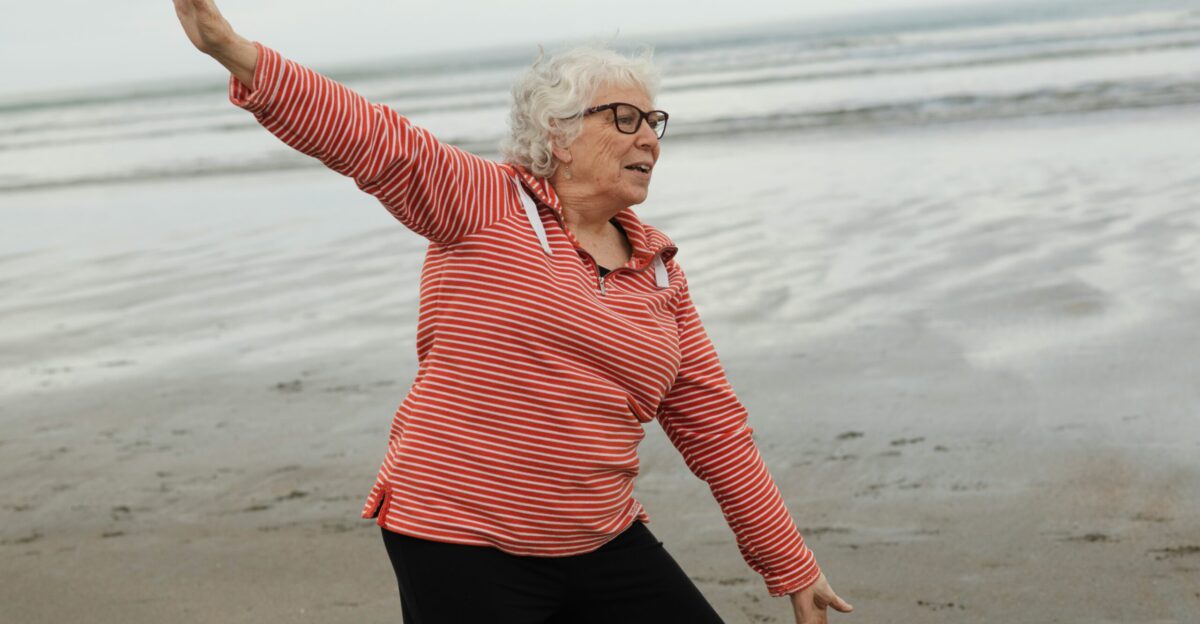
Most people overwhelm themselves trying to change everything at once. The truth is simpler: start with one or two moves and let success build its own gravity. A single habit practiced daily becomes easier, then automatic, and eventually becomes a foundational part of one’s life.
Once it sticks, adding another feels natural. This is how sustainable mornings form—quietly, progressively, without strain.
Choose the Morning That Fits Your Life

Morning routines aren’t competitions. They’re personal ecosystems. Some people thrive in calm, slow-paced environments; others prefer movement and momentum. Your version should feel supportive, not rigid.
Shape it around what strengthens you, not what impresses anyone else. The real power comes from alignment—choosing the moves that make your own body feel like home.
The First Hour Shapes the Rest of Your Life
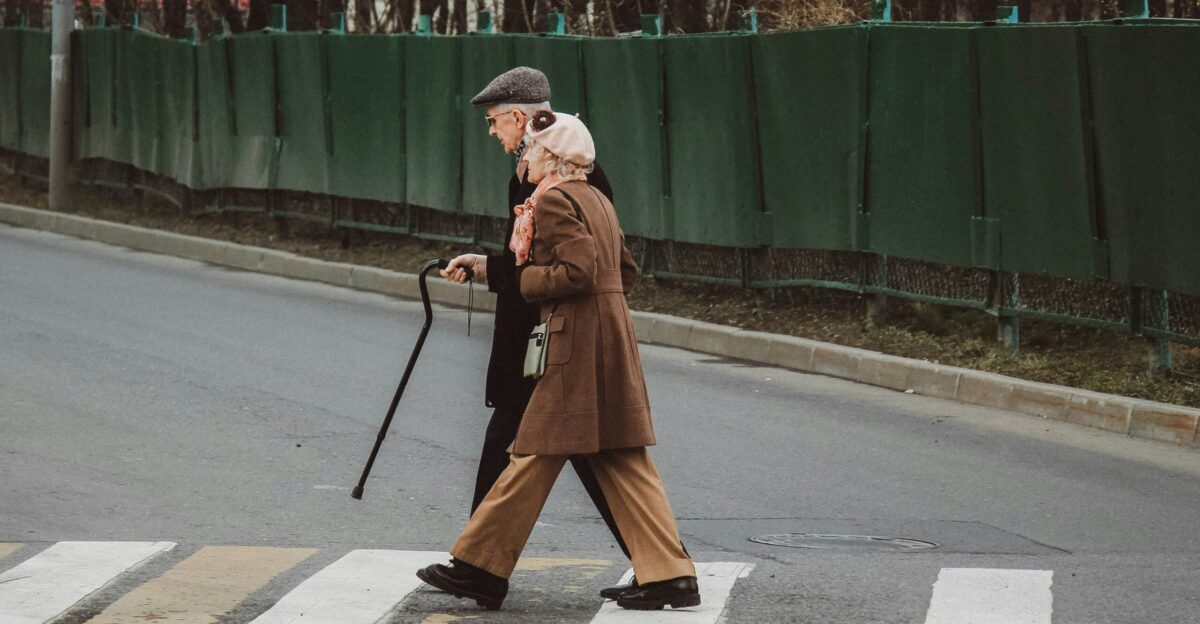
Every morning is a negotiation between who you were yesterday and who you’re becoming. These ten moves tip that negotiation toward clarity, resilience, and a longer, steadier future.
They transform the early hours into a foundation rather than a scramble. And the remarkable part is this: you don’t need to master them all. You only need to begin. Every morning offers another chance to shape the life ahead.


